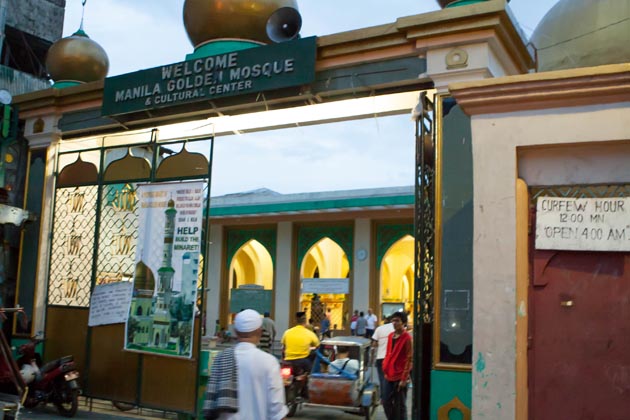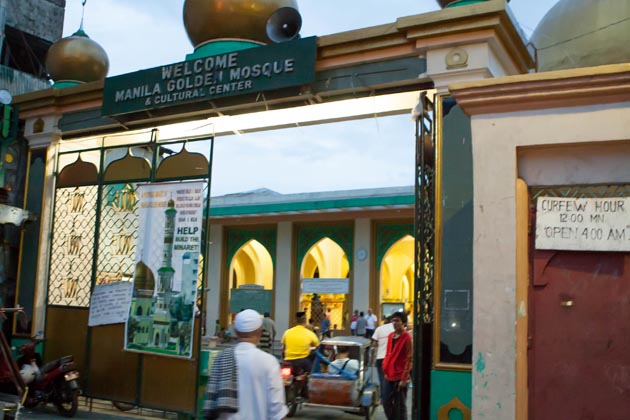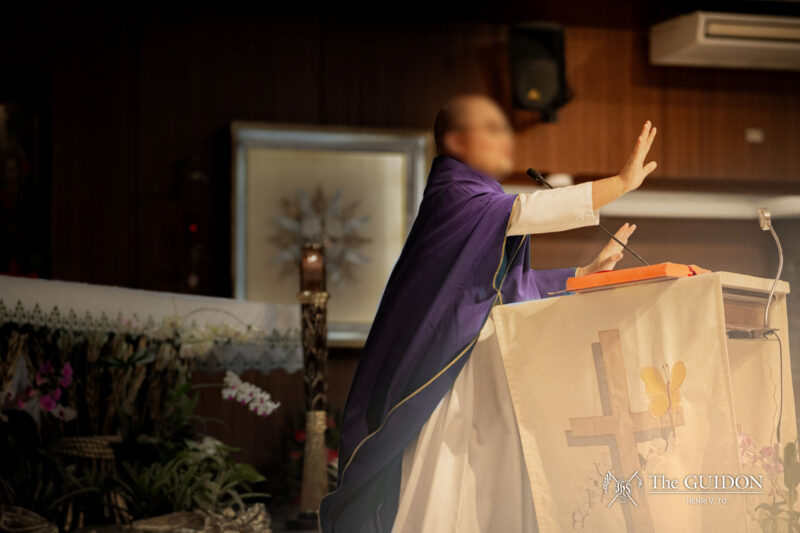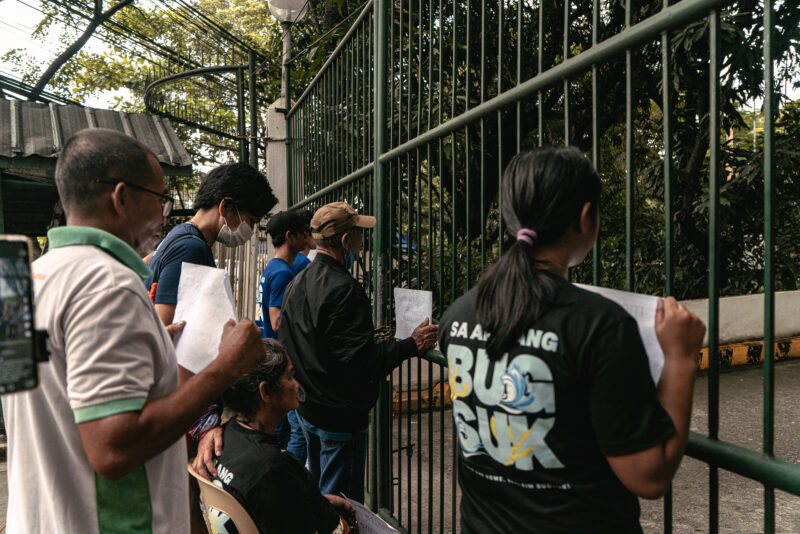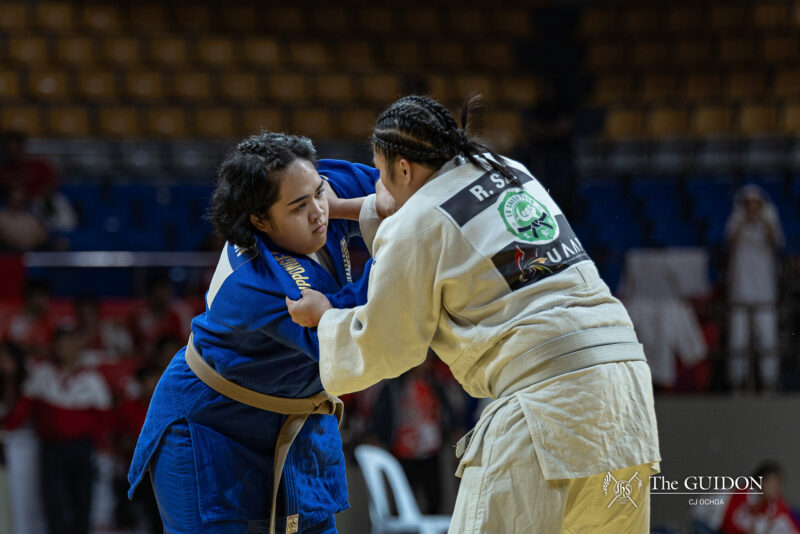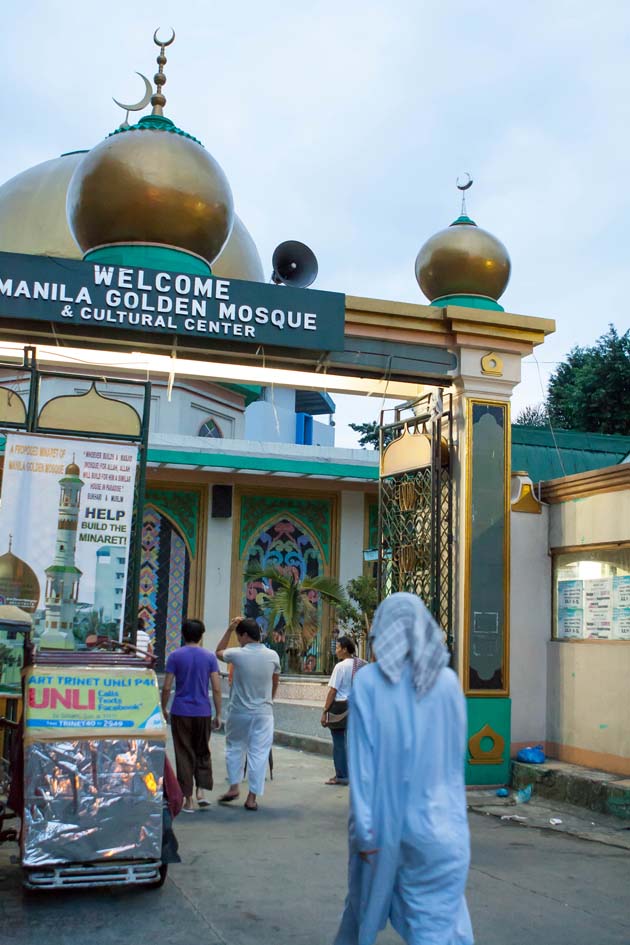
A LIFE OF PRAYER. Muslims flock to the Manila Golden Mosque in Quiapo, Manila. Photo by Mario T. Dagdag
During the time Abu Sayyaf insurgents were making headlines in 1998, environmental science sophomore Iman Ampatuan and her mother were strolling through a shopping mall. As they pushed through the crowd, four-year-old Iman clung to her mother’s hand—a detail she distinctly remembers—when someone sees her mother’s veil and calls out an accusation: terrorist.
Head held high, Iman’s mother gripped her child’s hand tighter and kept walking—as if nothing had ever happened.
First impressions
Fourteen years later, Iman still finds that first impressions are a challenge, especially because these days, the notoriety that a distant uncle has attached to her last name cannot be avoided. Nevertheless, while many hold stereotypes about Muslims, it’s something she’s learned to ride along with. She amuses herself, for instance, by sitting at the back of the class and watching her classmates’ heads turn toward her during roll call.
Long before the scandal in 2009, Iman was already a Muslim student in Christian-dominated Metro Manila. For the most part, she seemed like any other college youth: sociable, stressed over academics and active in school organizations like Entablado, a Filipino-language Ateneo theater group. But once the topic of religion is raised, she is faced with questions like “How does it feel to be a Muslim?” and “Isn’t it weird being Muslim?”
Such queries have the tendency to come off the wrong way, but Iman encourages them, saying, “Go lang!” whenever she senses any hesitation. “I actually love that people are curious and ask me questions,” she says.
Meanwhile, Amina*, a sophomore, shares that answering the same question again and again gets tiring. “Sometimes, I just don’t tell people [that I’m Muslim],” she says.
Amina’s reluctance to broadcast her religion is understandable, especially when one realizes that Muslim students have to face jokes made in poor taste all the time.
This reality was explored in Ramadan, a film by Dindin Reyes (AB Comm ’11), Carlo Chong (AB Comm ’11) and Dave Anastacio (AB Comm ’11), that looked into the actual experiences of Muslim students.
In one scene, the character Muneeb is asked to play a kidnapper for a class project. While his group mates laugh at the idea of their harmless friend dressed like a member of the Taliban—complete with drawn-on facial hair—Muneeb struggles to tactfully say no to the idea.
Religious discussion
Iman is constantly asked whether her years of Catholic education have made her consider changing her religion, to which she constantly answers no. “I find Catholicism to be more of a subject than a religion to consider,” she explains. “Life in Islam is what really stuck with me.”
Despite her confidence in her faith, Iman shares that one of her biggest fears is to have a theology professor who will “grill the non-Christian students.” However, she also looks forward to the possibility of genuine dialogue with her professors, having previously challenged her high school teachers’ flawed logic and explanations. “I have great respect for theology teachers who can defend their faith against someone who doesn’t believe,” she says.
Amina, on the other hand, does not share the same certainty. For a Muslim who has never taken a class on Islamic theology, regular Christian theology classes can put a strain on faith. “Sometimes I feel like I know more about your [Christian] religion than mine,” she shares.
For the most part though, “there are more convergences between Christianity and Islam than differences,” explains Rene Oliveros, PhD, who teaches Introduction to Islam in school. Though Muslims don’t believe in the divinity of Jesus Christ, both religions are monotheistic, and there is a defining emphasis in both religions on good works and charity.
“The spirituality and ideals are so close, almost kith and kin.” A devout Catholic, Oliveros grew up with a Muslim mother—proof that whatever differences the two religions have can be transcended for a harmonious, even loving, relationship.
However, it seems that the fundamental similarities that bind Christians and Muslims do not stop local media from calling out Muslims whenever they can, even when doing so is clearly irrelevant or unnecessary—an issue that truly bothers Amina. “I feel it’s unfair when [reporters] specify ‘Muslims kidnapped or killed these people,’” she says.
“What’s the difference between that and saying that a Christian killed someone? Why do they have to specify that the person was Muslim when every day, Christians or Catholics commit crimes as well?” Amina adds.
The prevalence of distorted notions about Islam and the Islamic community can also be seen in Oliveros’ class. The most popular topic pursued by his students’ final papers is jihad, an Islamic religious duty that can be interpreted as an internal spiritual struggle, but is more commonly known as holy war due to mainstream media’s representation of it as such. “That in itself already speaks loudly of the impression of some our students,” says Oliveros.
Differences in the details
Like any young adult, Iman and Amina work to balance their conservative background with the more liberal youth culture they’re part of. The way they dress, for example, can be an issue: while neither girl is expected to observe purdah—the practice of covering oneself with clothes or a veil in order to stay out of the sight of men—their parents draw the line at sleeveless shirts and shorts. “But I hate pants!” Iman interjects with a laugh.
The two have also gotten used to staying home on Sundays because their friends are celebrating the Christian day of rest. Amina shares, “Sunday is just a normal day for us.” Another Christian tradition that Muslims have lived with and accepted is Christmas. But Muslims have their own special holiday that majority of Filipino students see as merely a reason for having no school: Ramadan.
The month-long religious observance consists mainly of fasting and prayer, and not being able to eat or drink from 4:00 AM to 6:00 PM is made even more difficult when tests and papers are added to the mix. School food, for one, is tempting. Amina shares that “group work in JSEC can be tough during Ramadan.”
One other thing that they have had to get used to is the reaction they get when their friends find out they can’t eat pork. “Someone said to me, ‘you’re missing half of your life!’” laughs Amina, about never having eaten bacon.
Finding a place to pray in school during Ramadan can also be difficult, says Oliveros. He recounts a story of Muslim Ateneans who had to perform purification rites and pray in a bathroom at noon.
“In one of these restrooms, they found privacy,” he says.
Heads held high
While the prejudice against Muslims continues to be a problem in Philippine society, however, young Muslims are learning that identity cannot be tied down. “I like being unique,” Iman puts simply.
Much like Iman’s mother, the girls hold their heads high. Though both Iman and Amina keep a low profile, they cannot easily escape the stigma that comes with being different.
“Even in college, people joke around and say things like ‘don’t get that one mad’ or ‘she might kill us,’” says Amina. “But I guess I just got used to it. I know they’re just joking.”
*The name has been changed at the request of the interviewee.
With reports from Cristina T. Tantengco and Nadine Y. Ramos
The writer would like to thank Carlo Chong and Dindin Reyes for their insight, which contributed to the writing of this article.

